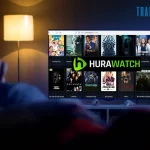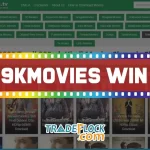Job interviews represent pivotal opportunities, showcasing your greatest professional strengths while asserting readiness, and contributing immense value towards coveted workplace roles. Mastery combines understanding diverse questioning formats and priorities alongside articulating impressive, well-researched responses highlighting capabilities matching specialized position requirements valued during evaluations. By following an exhaustive preparation regimen and response best practices, opportunities await leveraging your talents passionately.
Table of Contents
Understanding Diverse Interview Formats
Job interviews adopt varied structures based on company norms and particular role seniority levels. Recognizing distinguishing characteristics informs tactical adjustments, maximizing success under unique constraints:
One-on-One
This is a conversational exchange in which questions focus on aligning candidate experience against role requirements and organizational culture fit assessments from the interviewer’s perspective.
Panel Interview
Multiple interviewers concurrently meet, providing complementary assessments on technical capabilities, soft skills, and specialty expertise areas given role breadth handled through collaborative hiring manager input.
Phone Interview
Preliminary screening relies on conversational flow assessments, as interviewers cannot rely on body language cues when gauging remotely. Strong communication foundations get tested.
Video Interview
At once impersonal yet intimate, video interviews remotely evaluate candidates through comprehensive live behavioral assessments under logistical flexibilities. Unique dynamics call for dedicated familiarity.
Group Interview
Peer-to-peer exchanges involving current organizational members openly interacting with candidates allow for evaluating collaborative instincts and leadership style influences critical for seamless assimilations.
Understanding each format’s constraints informs necessary tactics, keeping interactions focused toward advocated advantages during vital exposure windows and making unforgettable first impressions. Now, what converts impressions into enduring advocates? Preparation.
Preparation is Key: Setting Yourself Up for Success
Forethought converts high-stakes interviews into commanding performances showcasing your outsized potential through:
Research the Company
Discover press releases, investor presentations, and news coverage identifying priority initiatives, competitive challenges, and workplace culture. Such fluency builds captivating discussions, demonstrating genuine interest.
Study the Job Description
Note must-have technical qualifications and soft skill preferences used crafting situational examples proving competencies specifically required according to published role mandates promising tightly aligned value exchanges.
Prepare for Common Questions
Anticipate frequent interview launching pads, such as describing strengths, weaknesses, and motivations guiding impactful work. Outline resonant stories proving exciting workplace contributions.
Prepare for Situational Questions
Hypothesize context-specific challenges related to industry environments and role duties defined within background research phases—script adaptable solutions and flex transferable skills from your experiences inventory.
Plan Attire Carefully
Reflect personal brand alignment toward company dress codes through formal business professional tones or relaxed, smart casual outfits discussing creative startup ecosystems. Look sharp, and feel comfortable.
Practice, Practice, Practice
Videotape mock interviews examine personal presentation and response conciseness opportunities, optimize behaviors, and limit distracting airs. Refine and sharpen delivery, avoiding “us, ” “ahs,” and exuding executive polish.
Prepare your Questions
Compile thoughtful queries demonstrating business understanding and engagement beyond canned fare about office perks or company directions easily Googled. Request expanded insights across strategic responses and cultural visions distinguishing leadership.
The intensive preparations separating adequate chances from truly differentiated opportunities stack valuable odds in your favor.
The Art of Answering: Mastering Interview Questions
Beyond understanding common question varieties typically posed, recognizing ideal response formulas ensures presenting your amazing qualifications persuasively, starting with frequent icebreakers:
“Tell Me About Yourself”
Succinctly outline top strengths demonstrated through two career achievement stories exemplifying significant contributions you wish to highlight. Tease growth opportunities ahead.
“Why Are You Interested in This Position?”
Flatter the role, company, and interviewer through pronged compliments appreciating exciting initiatives, values, and leadership seemingly aligned towards mutual growth opportunities combining your passions, capabilities, and responsibilities ahead.
“What Are Your Strengths and Weaknesses?”
Highlight 3-4 strengths verified through associated career achievement briefs. Then, identify two weaknesses, showcasing self-awareness and concrete actions demonstrating proactive remediation and committing to continuous personal growth.
“Describe a Time You Overcame a Challenge”
Narrate a story about an unexpected obstacle that jeopardized priorities you helped navigate through creative problem-solving, stakeholder leadership, or personal development contributions, leading to eventual success. Quantify achievements!
“Why Should We Hire You?”
Summarize top qualifications and passion areas perfectly matched to the role and company mandate statements read beforehand. Then, segue into questions clarifying their current challenges, feeling confident your capabilities deliver superior value in tackling specific needs.
Now that we have concise response formulas sure to impress, let’s examine tailored tactics for confronting specific complex question types that also frequently manifest.
Answering Different Interview Question Types
Beyond preceding fundamentals, interviewers utilize varied question types to assess critical competencies:
Behavioral Interview Questions
This probes how candidates handled specific work dilemmas in the past, similar to those anticipated on the job, through past-tense queries expecting detailed resolution descriptions.
Situational Interview Questions
Here, interviewers outline a hypothetical role-related challenge and then ask you to describe handling the situation, highlighting relevant skills. Your logic and instincts are tested.
Technical Interview Questions
Particularly for specialized roles, subject matter experts design scenarios that evaluate hard skill qualifications related to tools, coding, clinical knowledge, or machinery operations through practical assessments.
Open-Ended Interview Questions
Unlike narrow behavioral questioning, broad queries like “Tell me about your greatest accomplishments” allow custom responses emphasizing the most relevant experiences showcasing capabilities.
Hypothetical Interview Questions
Imaginative questions such as “Where would you like to see yourself five years from now?” perhaps examine planning mindsets and vision alignment against company trajectories about growth or leadership principles.
Now, beyond simply understanding distinctions, let’s examine proven methods of tackling challenges that many candidates find hardest overall – situational questions. Mastery takes practice.
The Situational Interview Challenge: Demonstrating Skills in Action
Unlike recycling past achievement summaries, situational questions demand demonstrating critical thinking under pressure and inventing bespoke responses aligned to role responsibilities – just like the real job environment candidates may enter. Some tips for tackling situational questions for job interview effectively include:
Apply the STAR Method
Contextualize situational answers by outlining the situation scenario, consequent task requirements, planned actions, and projected results that benefit objectives. Structure brings clarity.
Emphasize Demonstrable Skills
Draw explicit connections between described technical capabilities and soft skill competencies towards overcoming imaginary obstacles through transferable traits proven by actual career experiences. Show, don’t tell.
Be Specific About Actions
While situational dilemmas seem undefined initially, ask clarifying questions before outlining detailed action plans for overcoming challenges. Concrete sequences communicate leadership instincts beyond generic vagaries.
Think Critically and Quickly
Verbalize logical reasoning guiding crisis response decision trees in real-time. This proves effective analysis under pressure. Succinct first ideas usually shine best.
Focus on Pragmatic Solutions
Situational responses that satisfy interviewers balance creative ingenuity with pragmatic moves embracing realities beyond the hypothetical environments company veterans inhabit daily. Solve actual problems.
Conclusion
With preparations covering principle question varieties and answer best practices combined, tackle upcoming job interviews with supreme confidence. Opportunities await, elevating careers to heights aligned with personalized strengths and passions. Consult an extensive database featuring 100 common situational interview questions with example answers tailored for every job function and industry to confidently navigate this demanding question staple. Best of luck championing the future!






